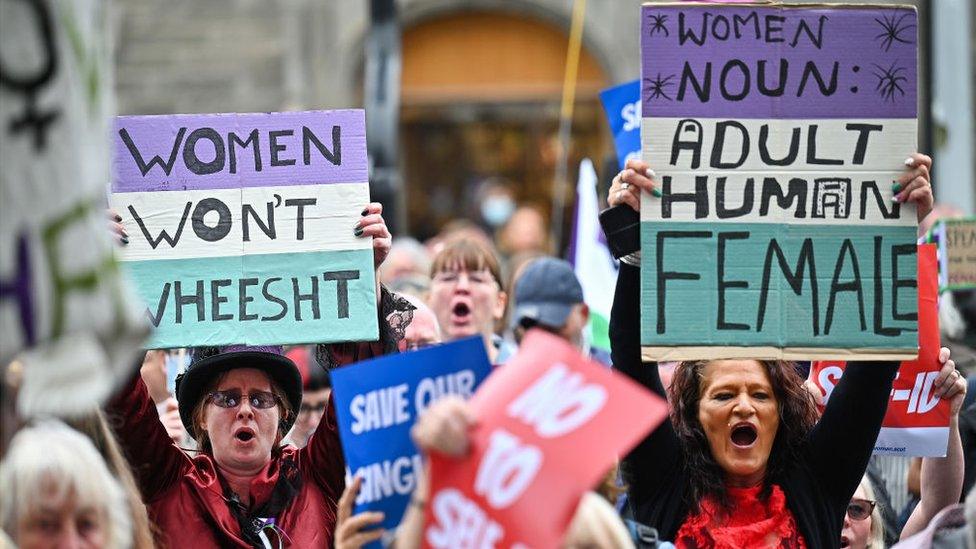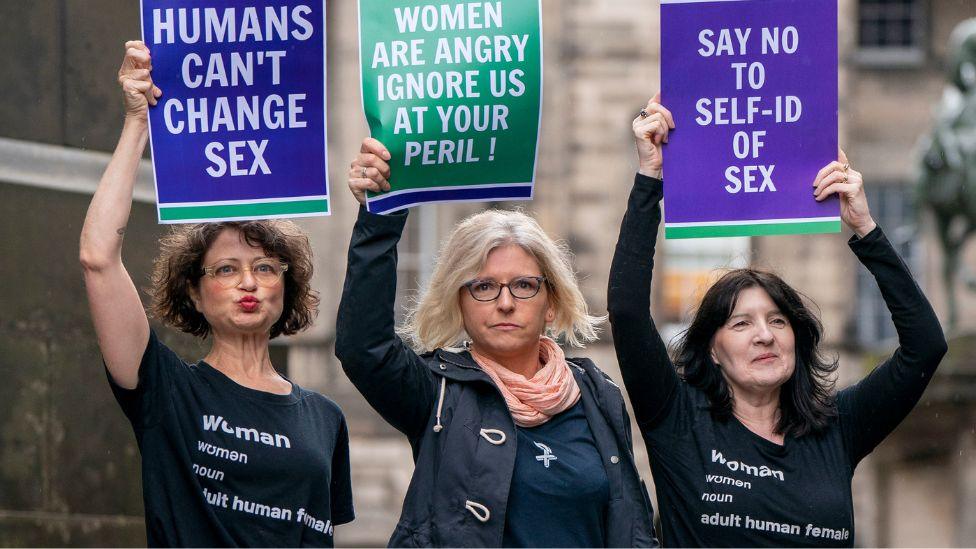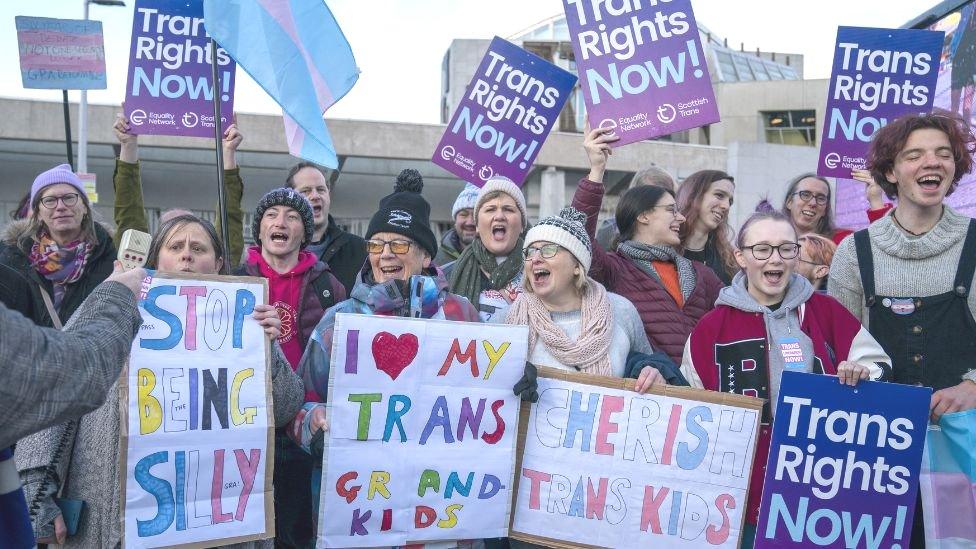Ruling due in Scottish gender reform legal battle
- Published

Campaigners have held rallies outside the Scottish Parliament about the reforms
A judge is expected to rule on Friday whether the UK government's veto of Scotland's gender self-identification bill will be allowed to stand.
Legislation making it easier for people to change their legally-recognised sex was passed by MSPs last year.
But the UK government blocked it from becoming law, claiming it could cut across UK-wide equalities rules.
The Scottish government launched a legal challenge, and a judgement from Lady Haldane is expected on Friday.
The case was argued at the Court of Session in September, but the losing side could ultimately appeal all the way to the Supreme Court.
MSPs passed the Gender Recognition (Reform) Scotland Bill by 86 votes to 39 following a heated debate.
The legislation would streamline the process for people to obtain a gender recognition certificate - the official route to changing your legally-recognised sex.
The UK government then stepped in to block the bill from becoming law, using for the first time ever powers contained in section 35 of the Scotland Act.
Scottish Secretary Alister Jack raised concerns that it could adversely effect the 2010 Equality Act, which applies in Scotland, England and Wales and sets out protections for groups including women and transgender people.

The case is being heard at the Court of Session in Edinburgh
The Scottish government challenged the move at the Court of Session, with its top law officer - Lord Advocate Dorothy Bain - saying that Mr Jack did not have "reasonable grounds" to block the bill.
She said the reforms would only change the process for getting a gender recognition certificate, not the actual effect of the certificate itself - and that there was thus no impact on equalities laws.
Ms Bain also warned that if the UK government was successful, Westminster "could veto practically any act of the Scottish Parliament having an impact on reserved matters because he disagreed with it on policy grounds".
She added: "That would be tantamount to the Scottish Parliament being able to legislate only insofar as the UK executive consented."
However David Johnston KC, for the UK government, said the move was "in no way unconstitutional".
He said section 35 of the Scotland Act was "part of the very structure of devolution".
He told the court that it would be "highly problematic" to have two different gender recognition systems within the UK, and that Mr Jack had acted within his duty to scrutinise the bill and to "protect the interests of the United Kingdom if he identifies adverse effects on the operation of law as it applies to reserved matters".
The case was heard by judge Lady Haldane, who is expected to deliver her judgement on Friday - subject to any last-minute changes.
The losing side will have the right to appeal the case further through the Scottish courts, and ultimately all the way to the Supreme Court in London.


The gender reform debate at Holyrood was a contentious one - and it sparked a controversial response from the UK government.
So this court ruling could carry real significance.
That's partly for those affected by the bill itself - the arguments have been well rehearsed about the potential impact on trans people, and on the rights of women and girls, and the Scottish government had hoped passing these reforms could help that debate to move forward.
It's also about the point of principle, about whether the UK government can intervene like this. Scottish ministers were keen to mount a challenge just to test the limits of this section 35 order.
It may not settle things once and for all, given the losing side can appeal this all the way to the Supreme Court.
But this could be a key moment for devolution as well as for these reforms.
- Published20 September 2023

- Published19 September 2023
